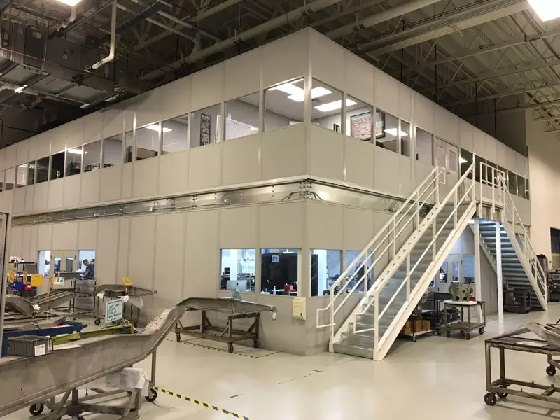
Industrial plant offices, often referred to as in-plant offices, are temporary structures that are set up in a working area to offer temporary housing during the work period. For construction workers, in-plant offices are a common phenomenon on site that boasts a lot of different applications. The diversity of in-plant offices allows them to remain the most viable housing and storage solution for construction and warehousing.
In-plant offices are re-usable and as such, they reduce structural costs of erecting new buildings on new sites. Each site and storage facility has its own unique needs that need unique solutions. In this article, we will look at the uniqueness of the in-plant offices designs, and the best way to utilize them.
How are Modular In-plant Offices Unique?
Contrary to regular masonry structures, modular in-plant offices are prefabricated and installed on-site as one complete unit. An in-plant office will be designed according to the office’s specifications required by the client. For industrial sites with limited space and resources, you can order used inplant offices with multiple stories and install steel mezzanine floors and stairs. Multi-story offices offer more space on the same sitting ground space.
In-plant offices are also anchored above the ground using steel columns to create working spaces below. Weather and soundproofing is done in modular in-plant offices to create a serene working environment, especially in industrial sites with heavy plants.
Larger in-plant modules are produced and used as manufacturing warehouses or as storage facilities. A large modular unit is partitioned to create space for washrooms and equipment storage.
What are the Advantages of Modular In-plant Offices?
It is uneconomical to build new offices in every new commercial, industrial, or construction site you are working on. The most common models of in-plant modular offices are made from reused cargo shipping containers. For a warehouse that needs modular office units, in-plant offices are ideal use because they offer flexibility when re-designing the office layouts. Some of the in-plant offices include:
- Re-usability
The biggest advantage of in-plant offices is the ability to reuse them. As a new business, you can opt to install used in-plant offices when the cost of buying a newly fabricated module gets high. Reusing in-plant offices not only reduces operational costs but also reduces environmental pollution.
- Cost Reduction
It is the primary goal of a business to reduce costs and increase profitability. A storage facility that is operating on leased land would want to stay away from risks associated with constructing permanent structures. In-plant office modules are preferred because of their relatively low cost of fabrication and ease of installation.
You can buy a complete in-plant office, have it set up, and start operations on the same day. Used inplant offices can be bought at half or at a fraction cost of a new unit which saves you a lot of money.
- Mobility
Once the work on site is completed, you can load your office modules on trucks and have them relocated to a new site.
- Easy Customization and Modifications
Modular in-plant offices are made of prefabricated metal, which makes it very easy for a skilled welder to re-design and apply desired changes.
Where are Modular In-plant Offices Commonly Used?
In-plant offices offer a wide range of applications in various industries. Their customizable nature makes them applicable to almost every business in need of a storage space. The biggest consumers of in-plant office modules are;
- Warehouses
In-plant modules are used to provide office spaces for management staff, break rooms, and equipment storage. They also provide manufacturing and processing spaces.
- Construction sites
Construction works cannot be carried out without temporary offices and storage facilities.
Other applications of modular in-plant offices include medical laser rooms, medical supply rooms, mobile dispensaries, and security offices.
Conclusion
Modular in-plant offices have infinite industrial applications. The mobility of in-plant offices is the most unique characteristic, as it allows you to reuse the same unit repeatedly. Recent adoptions of modular technology in building construction has presented alternative and affordable housing solutions to the market. With the development of rendering and designing technology, it is evident that modular technology is the answer to future storage and accommodation problems.






